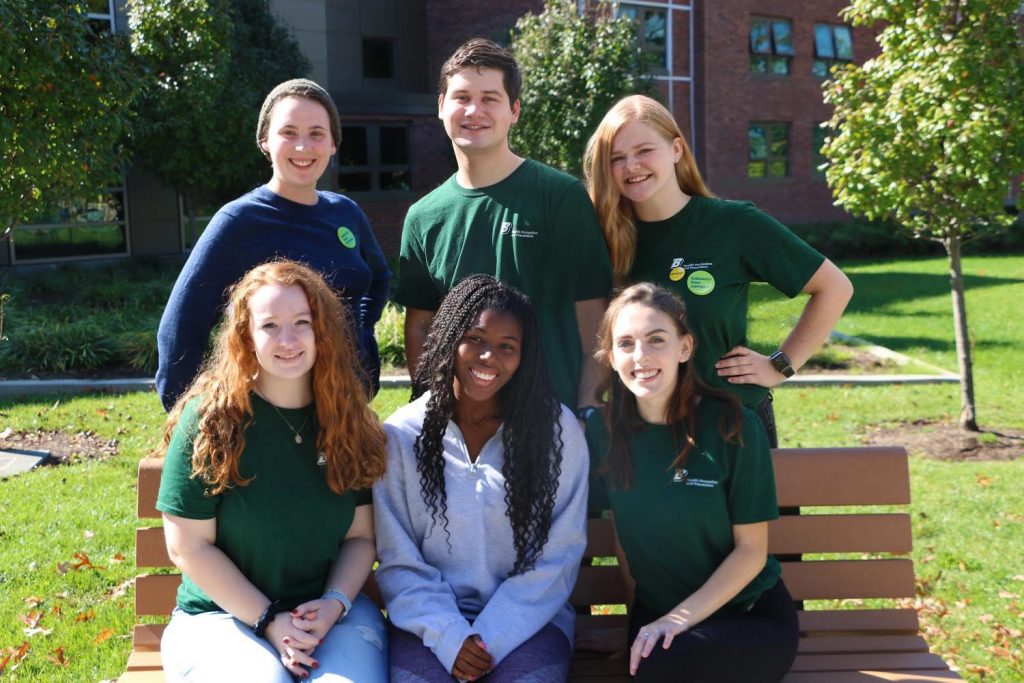November is designated as Tobacco Awareness Month and will kick off BU’s Health Promotion and Prevention Services’ (HPPS) new tobacco-free campaign.
HPPS created the campaign to help raise awareness about Binghamton University’s tobacco-free policy. The campaign, according to Kimberly Peabody, director of HPPS, is looking to recruit at least 30 student volunteers. The program will run for two weeks, from Nov. 6 to Nov. 20, and volunteers will receive a free tobacco ambassador shirt and a tobacco-free campus button.
“The tobacco-free ambassador internship was developed to ignite awareness and compliance with the tobacco-free policy, encourage quit attempts among smokers, provide social modeling to the campus community on how to approach smokers [and] vapers and collect data to describe the current status of nicotine use on campus properties,” Peabody wrote in an email.
The tobacco-free policy was implemented on campus in August 2017, but Binghamton’s New York State University Police Department (UPD) has no ability to legally enforce it. Therefore, the University relies on the community to abide by the rules. Although the policy’s name specifically targets tobacco, other forms of smoking that don’t contain tobacco are also not allowed, such as electronic cigarettes.
Lizz Schmidt, a sophomore majoring in psychology, is one of five consistent smoke- and tobacco-free ambassadors, and is helping recruit the 30 student volunteers that will help HPPS throughout the month. She said the campaign is important because it will allow for more students to help spread the policy.
“We have the tobacco-free ambassadorship and those are the main interns for the program,” Schmidt said. “But then we’re doing this 30-people campaign just for a section of November, so we’re just trying to get 30 volunteers and that could be anyone. We’re getting these volunteers to specifically promote the tobacco-free policy, and if anyone’s breaking the policy, then the point of the program is for the volunteers to report it on this Google form.”
According to Schmidt, students may not be aware of the policy since it was only recently implemented.
“Our main goal with the program is to educate campus about the policy since it’s relatively new,” Schmidt said. “We’re trying to just educate everyone about it because some people still don’t know. There aren’t going to be any punitive consequences or anything if you are smoking on campus, but it’s about if you see someone smoking, just making them aware of the policy.”
BU’s decision to go tobacco-free was in the interest of the entire community as well as the campus itself, according to Schmidt.
“This policy is to benefit everyone on campus first,” Schmidt said. “The people that are engaging in smoking were trying to help their health overall because of all the negative effects of smoking and same with vaping. But also, secondhand smoke and something that people don’t think about a lot, cigarettes are the most littered thing in the world, so our campus we’re trying to keep healthy overall by prohibiting this.”
According to Peabody, participants in the internship will complete the certification exam for the National Association of Student Personnel Administrators Certified Peer Educator training program and gain numerous skills that they can apply to other aspects of their life.
“By the end of the internship, I hope that students will learn about nicotine, nicotine addiction and available local, state and federal resources, share their knowledge of health implications associated with smoking and tobacco use, manage crises, respond as an empowered bystander and refer to appropriate resources,” Peabody wrote.



